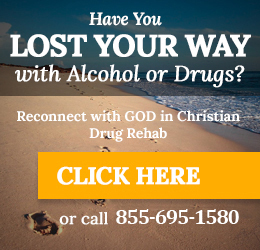Whether you have a history of brushes with the law or have always been a hard-working, law-abiding citizen, once you fall prey to drug addiction, legal problems are almost sure to follow. More than half of Americans who are arrested test positive for illegal drugs. According to the U.S. Department of Justice, drug abuse is tied to robbery, property crimes, domestic violence and sexual offenses, among others.
Here are some of the most common legal consequences of addiction:
Driving Under the Influence
It is illegal to be in possession of illicit drugs but it is a far greater crime to drive while under the influence. Using drugs or alcohol slows functioning in the brain, distorting your vision and inhibiting your response time. These effects dramatically increase your risk of getting into a car accident that harms yourself or others. Every minute, someone is injured from an alcohol-related crash, reports Mothers Against Drunk Driving.
Although many people mistakenly believe they can drive safely after a couple drinks, studies show that having a blood alcohol content (BAC) just slightly over the legal limit (.10, which is .02 above the legal limit) puts drivers at seven times the risk for being in a car accident that kills someone. The risk is 25 times higher for someone with a BAC of .15. Even if you’re within the legal limit, research shows an increased risk of being in a car crash.
What are the consequences of DUI? The laws vary in each state, but in general, a first DUI offense requires DUI classes and, in some states, lengthy license suspensions and a weekend in jail. Having multiple DUI convictions is often considered a felony, which requires mandatory jail time in some states.
 Repeat DUI offenses can impact car insurance rates for many years and lead to the revocation or permanent suspension of your driver’s license. Reinstating the license often requires DUI school, an assessment by a professional counselor and some form of treatment (e.g., drug rehab, 12-Step meetings or outpatient care), depending on the severity of the drug problem. Driving under the influence is costly, both financially and in terms of the potential damage to human lives.
Repeat DUI offenses can impact car insurance rates for many years and lead to the revocation or permanent suspension of your driver’s license. Reinstating the license often requires DUI school, an assessment by a professional counselor and some form of treatment (e.g., drug rehab, 12-Step meetings or outpatient care), depending on the severity of the drug problem. Driving under the influence is costly, both financially and in terms of the potential damage to human lives.
Domestic Violence
Substance abuse is strongly linked to domestic violence. An estimated 25 to 50 percent of acts of domestic violence are committed by men with drug or alcohol problems. Those who abuse substances are violent more frequently and inflict more serious injuries. They are also more likely to resort to sexual violence and to get violent outside the home.
Research shows that women who abuse drugs or alcohol are more likely to be the victims of abuse. In fact, women who have been abused are 15 times more likely to abuse alcohol and nine times more likely to abuse drugs than women who have not been abused.
Children also suffer. As many as 80 percent of child abuse cases are associated with drug or alcohol abuse, according to a survey by the National Committee to Prevent Child Abuse.
In the case of violent crimes such as rape, assault and robbery, most addicts test positive for alcohol, followed by benzodiazepines, both of which make the user lose their inhibitions and feel invincible. Some have no recollection of their actions while under the influence of these drugs.
Prescription Fraud
As the nation faces a prescription drug epidemic, prescription fraud is a growing problem in every jurisdiction. Also known as “pharmaceutical diversion,” prescription fraud is defined as the illegal acquisition of prescription drugs for personal use or profit. Behaviors that fall under this category include:
- Forging prescriptions
- Feigning symptoms or deliberately injuring oneself to obtain prescriptions
- Creating fake prescriptions on a computer
- Theft of prescription pads
- Doctor shopping (visiting several doctors to get multiple prescriptions)
- Calling in a fraudulent prescription by impersonating medical staff
- Altering prescriptions to increase the quantity, change the type of drug, increase the number of refills or add drugs
- Copy a legitimate prescription for multiple uses
Some of the most abused prescription drugs include Vicodin (hydrocodone), OxyContin (oxycodone), Valium (diazepam), Percocet and Xanax (alprazolam). Most cases of prescription fraud are never uncovered as few agencies, doctors or pharmacists track these behaviors. For those who are convicted, prescription fraud is a felony punishable by up to five years in prison, unless the individual can negotiate drug rehabilitation or probation in lieu of jail time.
Theft
Intense drug cravings and the high price of drugs drive many addicts to commit crimes to get drugs or money to buy drugs. Property crimes such as theft, larceny and burglary are among the most common crimes committed by addicts. They may steal DVDs, electronics and heavy equipment which can be easily exchanged, or they may break into a drug clinic, pharmacy, car, business or private home to steal drugs. Depending on the type and value of the property stolen, theft can be a misdemeanor or felony, with a wide range of penalties.
Prostitution
The nature of addiction causes men and women to use whatever means necessary to get more drugs, including selling their bodies for drug money. Experts estimate that 40 to 85 percent of prostitutes are drug users. In addition to suffering psychological and emotional trauma, these individuals are more likely to suffer from sexually transmitted diseases and various forms of abuse.
Is drug use to blame for a growing crime rate? A cause-effect relationship remains unclear, but there is no question that substance abuse and crime are strongly correlated. Addiction can destroy your life. A life of crime fueled by addiction can be a literal death sentence. Get help before your life is changed forever.
Call Today: 855-763-6488
Get Help Today Before Legal Consequences Take Place



